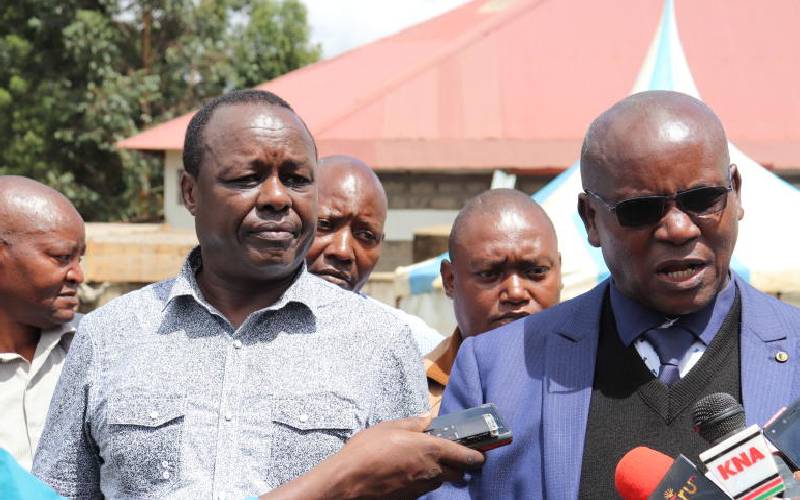×
The Standard e-Paper
Kenya’s Boldest Voice

Former Embu Senator Lenny Kivuti and Embu County Coffee Mill chairman John Muriuki attend church at Kavutiri Catholic Church. [Joseph Muchiri, Standard]
An ambitious Sh90 million coffee milling plant that would have multiplied earnings for farmers is yet to start operating.